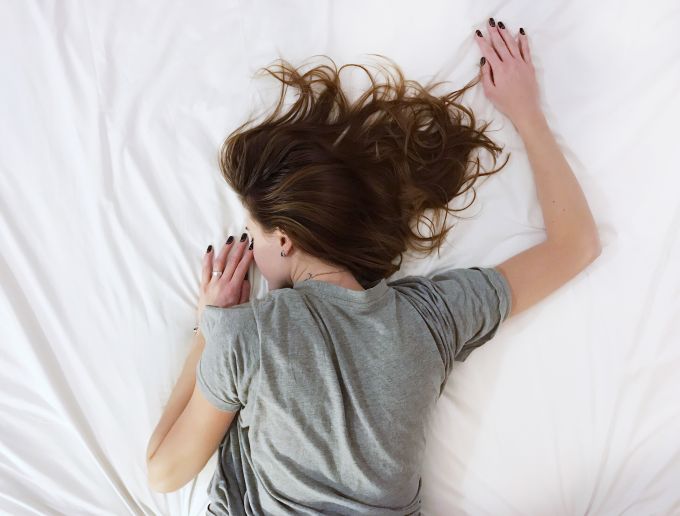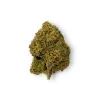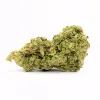As more and more people look for natural solutions to improve their sleep, melatonin has become a popular choice. But with supplements like melatonin so ubiquitous these days and everyone having some in their cabinet, it can be challenging to know where to start. For example, does melatonin expire? Lucky for you, we’ve put together this handy-dandy guide on everyone’s favorite snoozy supplement. In this article, we will answer some of the most frequently asked questions about melatonin products, so you can decide whether it's the right choice for you.
Sleep is an essential part of our overall well-being. However, getting a good night's sleep can be challenging for many people. Enter melatonin. It’s a natural hormone often used to improve sleep and has become a popular choice for those seeking a more natural solution. Our guide will look closely at melatonin, including its benefits, risks, and whether it's safe to take with antibiotics.
So try not to doze off while reading!
Do Melatonin Gummies Expire?
Everything expires, whether it's the capsules in your kitchen cabinet or your gym membership. But what about melatonin gummies? Do melatonin gummies expire? With the expiration date of perishable items easy to find, it's helpful to know whether melatonin gummies fall into this category. Consumers need to know if these supplements have an expiration date like any other food or supplement.
Melatonin Gummies and the FDA: Expiration Dates
Melatonin gummies are considered a dietary supplement, and the FDA has specific regulations for nutritional supplements and their expiration dates. Generally, these supplements must have an expiration date at least two years after the date of manufacture. Even though melatonin typically has a shelf life of one to three years, something that can vary based on variables such as how it’s stored and what delivery form is being used, manufacturers still must follow the law.
It is crucial to check the expiration date before taking any melatonin product and to store it properly to ensure its potency. If the gummies have an off-odor or taste, it's advisable to discard them and purchase a fresh batch.
What Happens If You Take Expired Melatonin?
Out-of-date melatonin may not be as effective as fresh melatonin and could even be harmful. It may not provide the same potency level, so it may not be as effective as new melatonin. Additionally, the chemical composition of expired melatonin may have changed over time, leading to the potential of it being harmful. For instance, an outdated melatonin supplement could contain contaminants or have been stored improperly. It could lead to a decrease in potency and changes in chemical composition, making it dangerous to use.
Although food may look and smell okay, it can be contaminated with harmful bacteria and cause illness if ingested. Think of it as similar to that of spoiled food products. Therefore, checking the expiration dates of food products is critical to avoid any potential risks.
Side Effects From Expired Melatonin
Expired melatonin capsules can lead to harmful and dangerous adverse effects. The effects of expired melatonin can be unpredictable, causing user illness. For example, consumers who ingest spoiled melatonin gummies may experience the following:
- Headaches
- Dizziness
- Upset stomach
- Infection
- Allergic reaction
- Other serious health issues
If you are unsure about your melatonin's potency or expiration date, it's always advisable to consult a professional.
How Long Does Melatonin Last?
The duration of melatonin can vary depending on several factors, including the individual's metabolism and the dose taken. In general, melatonin will begin to take effect within 30 minutes to an hour after ingestion, and the effects will typically last for about 6 to 8 hours.
Factors That Affect How Long Melatonin Gummies Last
Several factors can impact how long melatonin gummies last in the body, including:
- Dosage: The amount of melatonin taken can impact how long it lasts in the body. Higher doses can result in longer-lasting effects, while lower doses may be metabolized more quickly.
- Age: As we age, our bodies may become less efficient at metabolizing melatonin, leading to longer-lasting effects.
- Metabolic rate: Individuals with a faster metabolic rate may metabolize melatonin more quickly, resulting in shorter-lasting effects.
- Food and drink: Eating a large meal or drinking alcohol before taking melatonin can slow the body's metabolism and lead to longer-lasting effects.
- Genetics: Genetic variations can impact how the body processes and metabolizes melatonin, leading to differences in how long it lasts in the body.
- Medical conditions: Certain conditions, such as liver or kidney disease, can impact the body's ability to metabolize melatonin, leading to longer-lasting or shorter-lasting effects.
- Drug interactions: Some medications can interact with melatonin and impact how long it lasts in the body.
It's important to note that everyone's body is unique and that the duration of melatonin's effects can vary significantly from person to person. If you're considering taking melatonin gummies, you must consult an expert to determine the correct dose and timing.

When dosing melatonin, it's wise to start with the lowest effective dose and gradually increase it as needed. Higher doses can cause side effects such as headaches, dizziness, and irritability. Additionally, it's critical to note that melatonin is not intended for long-term use, so it's essential to take as little as possible while still achieving the desired result.
The recommended starting dose is between 1 and 3 mg, taken 30 minutes to an hour before bedtime. However, some people may need a higher dose of melatonin to fall asleep. If the recommended starting dose isn't working, you must talk to your doctor before increasing your dosage.
For more information on dosing melatonin, take a look at the table below:
|
Reason for Taking Melatonin |
Low Dose |
High Dose |
|---|---|---|
|
General Bedtime Needs |
0.3mg |
5mg |
|
Sleep-Wake Disorders |
0.5mg |
5mg |
|
Insomnia |
2mg |
3mg |
|
Jet Lag |
0.5mg |
8mg |
Cannabinoids infused with Melatonin - What’s The Hype About?
Cannabinoids infused with melatonin are a new supplement combining the natural sleep-promoting properties of melatonin with the relaxation benefits of compounds such as CBD. While this combination may benefit some individuals, more research is needed to understand the effects and potential risks fully. If you are interested in trying a cannabinoid-infused melatonin product, you can find some at the click of a mouse.
With the legalization of hemp-derived cannabinoids, melatonin combos for enhanced sleep are available all over. The key is finding a reputable retailer like Diamond that sends their products to third-party labs for testing. Products like Diamond’s eponymous CBD, CBN, and Melatonin Blend Capsules are a great way to catch some Zs.
Cannabinoids and Melatonin: What’s the Best Combination?
The interaction between melatonin and cannabinoids is not well understood, and more research is needed to fully understand how they may interact. However, some studies have suggested that THC can interfere with the body's natural melatonin production, potentially disrupting standard sleep patterns. On the other hand, CBD has been found to improve sleep quality and may work in synergy with melatonin to enhance its effects.
It's important to note that the effects of these compounds can vary greatly depending on the individual and the specific product used and that there is limited research on cannabinoids in combination with melatonin. If you're considering taking a product containing melatonin and cannabinoids, you should do your research first. Always take any product in moderation.
For more information on cannabinoid-melatonin combos, see the table below:
|
Cannabinoid |
Name |
Effect |
Combine With Melatonin? |
|---|---|---|---|
|
THC |
Tetrahydrocannabinol |
The main psychoactive component of cannabis, and is responsible for the "high" associated with marijuana use. |
NO - THC is said to inhibit melatonin production, thus making it a poor combination. |
|
CBD |
Cannabidiol |
A non-psychoactive compound that has been studied for its potential wellness benefits, including reducing anxiety and improving sleep. |
YES - CBD is said to improve sleep quality, making it a great pair with melatonin. |
|
CBN |
Cannabinol |
A mildly psychoactive compound that is thought to have sedative effects. |
YES - With barely noticeable psychotropic effects and strong sedative effects, it’s a synergistic combo with melatonin. |
|
Cannabigerol |
This is a non-psychoactive compound that has been studied for its potential to reduce anxiety and improve sleep. |
YES - Combines great with CBD, helps with sleep, and makes an excellent pair with melatonin. |
Can Melatonin Trigger a Drug Test?
Melatonin is not a controlled substance and is not typically tested for in drug tests. It does not have any psychoactive properties and is not considered a drug. Therefore, it does not appear on a drug test and will not interfere with the test results. Additionally, it can be safely used as a sleep aid without fear of legal repercussions due to its non-controlled status.
However, in rare cases, it may show up on a drug test if the individual has taken a large dose or if the test is explicitly looking for melatonin. A SleepFoundation.org survey in June 2022 found that 27.4% of U.S. adults take supplemental melatonin as a sleep aid, and they do so, one can assume, without any legal issues.
Mixing Melatonin with Other Substances - Safety Concerns
Mixing melatonin with other substances, such as alcohol or prescription medications, can increase the risk of side effects and may interact with each other. Since melatonin is a hormone, it can interact with other bodily substances, such as alcohol and prescription medications, and potentially cause adverse reactions.
By mixing melatonin with other substances, you are introducing additional variables that may interfere with the body's natural processes and can increase the risk of side effects. The most common melatonin side effects include headaches, dizziness, and nausea. Other less common melatonin side effects might consist of intense or disturbing dreams, temporary mood changes, restlessness, gastrointestinal discomfort, changes in bowel movements, loss of appetite, and urinary incontinence at night.

Can You Take Melatonin with Ibuprofen?
Yes, melatonin can be taken with ibuprofen. However, it is essential to take the correct dose of each medication, as taking too much of either could have unwanted side effects. There is no significant interaction between melatonin and ibuprofen when administered orally. Nonetheless, melatonin and ibuprofen may increase the risk of bleeding when consumed together, so talk to your pharmacist before taking them together. Taking them at least two hours apart is also recommended to reduce the risk of interactions. However, both melatonin and ibuprofen have sedative effects, and taking them together may enhance these effects and lead to increased drowsiness and decreased alertness.
Can You Take Melatonin with Benadryl?
Yes, melatonin can be taken with Benadryl. Be aware, though, that Combining melatonin and Benadryl (diphenhydramine) may have the following interactions and effects:
- Increased sedation: Both melatonin and Benadryl have sedative effects, and taking them together may increase drowsiness and decrease alertness.
- Enhanced sleepiness: The combination of melatonin and Benadryl may make it easier to fall asleep and stay asleep, but it may also lead to grogginess upon waking.
- Interference with cognitive function: The combination of melatonin and Benadryl may impair cognitive function and reaction time.
- Risk of adverse reactions: The combination of melatonin and Benadryl may increase the risk of adverse reactions such as dizziness, confusion, and disorientation.
Can You Take Melatonin with Antibiotics?
Combining melatonin and antibiotics may even increase the effectiveness of antibiotics, though that also depends on other factors. However, it can also increase the side effects of both medications. Some antibiotics may interact with melatonin, leading to unwanted side effects. Melatonin can be taken with antibiotics, but it's always best to check with a healthcare professional first.
When taken together, the combination may affect how the body processes the medications, leading to higher levels of either or both compounds. It can result in the body being overwhelmed by the medication and can cause serious side effects, such as nausea, dizziness, fatigue, and headaches. Generally speaking, nearly 20% of patients treated with antibiotics experience adverse side effects.
Melatonin Supplements Explained
Melatonin is a hormone naturally produced by the body that regulates the sleep-wake cycle. Melatonin supplements are synthetic forms of this hormone that are available in pill form. The following are some key differences between natural melatonin in the body and melatonin supplements:
- Source: Natural melatonin is produced by the pineal gland in the brain, while melatonin supplements are synthetic and manufactured in a laboratory.
- Dosage: Natural melatonin production in the body is regulated by various factors, including exposure to light and physical activity. Melatonin supplements come in a fixed dose, usually 1 to 10 mg.
- Timing: Natural melatonin production follows a circadian rhythm, peaking in the evening and declining throughout the night. Melatonin supplements can be taken any time, but it is recommended to take them 30-60 minutes before bedtime.
- Efficacy: The efficacy of melatonin supplements can vary based on factors such as the dose, consumption timing, and individual metabolism differences.
- Safety: Natural melatonin is generally considered safe, but its long-term effects and potential interactions with other medications are poorly understood. Melatonin supplements are usually regarded as safe when used as directed. Still, speaking with a healthcare provider before starting melatonin supplementation is vital to determine if it is appropriate for you.
In conclusion, both natural melatonin in the body and melatonin supplements can help regulate the sleep-wake cycle. Still, there are differences in the source, dosage, timing, efficacy, and safety of these two forms of melatonin.

Benefits of Melatonin
Melatonin has been shown to have several benefits, including improved sleep and reduced feelings of jet lag. It may also have potential benefits for individuals with the seasonal affective disorder (SAD), a form of depression that occurs during the shorter daylight hours of the year. Additionally, some research suggests that melatonin may have antioxidant properties, which could positively impact overall health.
How Can Melatonin Benefit Me?
As you know, melatonin is a hormone naturally produced by the body that regulates the sleep-wake cycle. The following are some of the potential benefits of taking melatonin supplementation:
- Improved Sleep Quality: Melatonin is often used as a sleep aid to improve sleep quality, particularly for people with insomnia or other sleep disorders.
- Jet Lag Management: Melatonin may help reduce jet lag symptoms by adjusting the sleep-wake cycle to the local time zone.
- Alleviation of Seasonal Affective Disorder (SAD): Melatonin supplementation may help alleviate symptoms of Seasonal Affective Disorder (SAD), a form of depression that occurs during winter.
- Antioxidant Properties: Melatonin has antioxidant properties that may help protect against oxidative stress and cellular damage.
- Potential benefits for specific conditions: Melatonin may benefit various conditions, including migraines, tinnitus, and depression. However, more research is needed to understand its effects in these areas fully.
It's important to keep in mind that while melatonin supplementation may have potential benefits, it is not recommended as a substitute for established treatments. Additionally, the safety and efficacy of melatonin supplementation can vary depending on factors such as age, medical history, and the presence of other chemicals.
Risks of Melatonin
While melatonin is generally considered safe, it's essential to be aware of potential risks. Side effects may include headaches, dizziness, and stomach upset. Additionally, taking high doses of melatonin can cause drowsiness during the day, leading to impaired judgment and reaction times. If you experience any adverse reactions after taking melatonin, you should stop taking it immediately.
To see how melatonin compares to other popular sleep aids, see the table below:
|
Sleep Aid |
Types |
Side Effects |
|---|---|---|
|
Melatonin |
Gummies, Capsules |
Mild drowsiness, headache, dizziness, nausea, and grogginess upon waking |
|
Prescription Sleep Aids |
Benzodiazepines, Nonbenzodiazepines, and Tricyclic Antidepressants |
Drowsiness, headache, dizziness, nausea, and changes in appetite. Some prescription sleep aids can also cause dependence, tolerance, and withdrawal symptoms.
|
|
Over-the-counter Sleep Aids |
Diphenhydramine and Doxylamine |
Drowsiness, headache, dizziness, nausea, dry mouth, and changes in appetite. Over-the-counter sleep aids can also cause impaired cognitive function, confusion, and disorientation. |
Benefits of Melatonin: What the Studies and Research Says
Numerous studies have been conducted on melatonin and its effects over the years. It's important to note that not all studies have found the same results, and more research is needed to understand the impact of melatonin fully. Additionally, melatonin is a hormone and should be used cautiously, as high doses can cause drowsiness and impaired judgment. Studies are often preliminary and should be taken with a grain of salt.
Some of the findings from these studies include:
- Research shows that melatonin is often used as a sleep aid, and several studies have found that it can effectively improve sleep quality and reduce the time it takes to fall asleep.
- Melatonin studies have shown the supplement to be effective in reducing the symptoms of jet lag, including fatigue and disrupted sleep patterns.
- Some studies have suggested that melatonin may have antioxidant properties, which could help protect against cellular damage and support overall health.
- Melatonin has been studied as a potential treatment for seasonal affective disorder (SAD). Some research suggests that it may be effective in reducing symptoms of depression and increasing energy levels.
- Melatonin is an effective treatment for insomnia, with research telling us that it is beneficial in individuals with chronic insomnia.
In conclusion, melatonin has been shown to have potential benefits for sleep and overall health, but more research is needed to understand its effects fully.
In Conclusion: Melatonin Supplements
One aspect of melatonin supplements that are not well known by many people is that melatonin is not regulated as a drug by the U.S. Food and Drug Administration (FDA). Instead, it is classified as a dietary supplement, which means that it is not subject to the same level of regulation as a prescription or over-the-counter medications. For consumers, this can lead to inconsistent dosing, purity, and labeling of melatonin supplements. Always find a retailer you can trust (like Diamond).
Additionally, while melatonin is often marketed as a natural sleep aid, it is not a natural hormone for everyone. Some individuals, such as those with certain medical conditions or taking certain medications, may have altered melatonin levels in their bodies. Taking melatonin supplements in these cases may not be appropriate and could lead to unwanted effects or interactions.
That being said, melatonin is generally safe and can help promote natural sleep. So give it a try, and have a great night’s rest!











